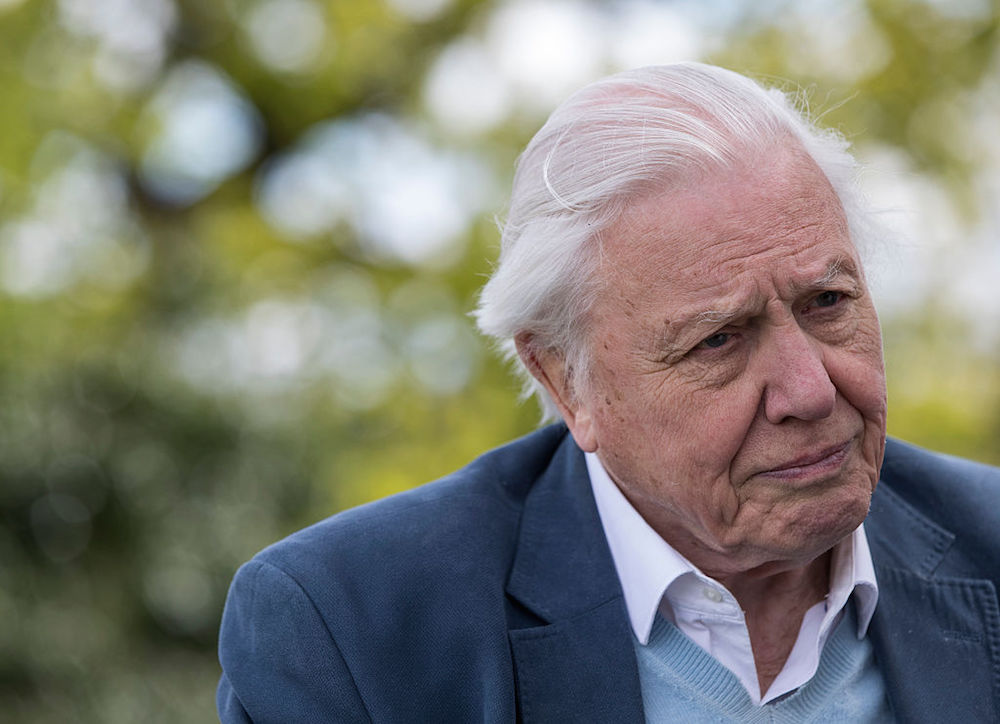After Life of Adventure, Attenborough Regrets Missed Family Time

Sir David Attenborough has traveled around the world and back, but despite his countless wildlife adventures and exploits in the natural world, said he does have one major regret.
The "Planet Earth" narrator wishes he had spent more time with his children when they were young, he told the Radio Times, a weekly British magazine.
Attenborough said he was "unbelievably lucky" to have the life he's led, but said he regrets that his work took him away from his son, Robert, and daughter, Susan. "If you have a child of 6 or 8 and you miss three months of his or her life, it's irreplaceable," Attenborough said. "You miss something." [6 Spectacular Species Named for David Attenborough]
The naturalist noted that his wife, Jane, who died from a brain hemorrhage in 1997, was "understanding" about his work schedule, but Attenborough still noted that "perhaps you can't have your cake and eat it."
Research suggests that if people have regrets, they should show themselves a little self-compassion, which can help them move on, Live Science previously reported. In a study published in 2016 in the journal Personality and Social Psychology Bulletin, people who showed kindness to themselves through self-compassion were more likely to overcome regrets than people who didn't.
In another study, published in 2012 in the journal Science, researchers found that letting go of regrets can improve a person's emotional well-being.
In other words, it's better "to not look back in anger and [instead] to focus on the positive," study lead researcher Stefanie Brassen, a neuroscientist at University Medical Center Hamburg-Eppendorf in Germany, told Live Science in a previous interview.
Sign up for the Live Science daily newsletter now
Get the world’s most fascinating discoveries delivered straight to your inbox.
Helping planet Earth
Later in the interview, Attenborough, who celebrated his 91st birthday on May 8, revealed that his mortality is often on his mind, as "it's more and more likely that I'm going to die tomorrow." But when Radio Times interviewer Louis Theroux asked Attenborough whether he expects anything to happen following death, Attenborough replied with a simple "no."
He also shared what he saw as the planet's largest challenge: population size.
"[It] lies at the base of a lot of our problems," Attenborough said, according to the BBC. "Why are people coming across to Europe at the moment? Partly, it's political problems, but also because living is very, very hard. People are right [on] the edge there [in their native countries]. The land is not producing enough food for them."
Attenborough also relayed his concerns about climate change.
"We should be very, very worried about it," he said, according to the Radio Times. "The land is being scorched, deserts are spreading, and the seas are warming — all those factors cause great changes in our fortunes."
The host of "Life on Earth" also talked about his work with animals, saying that of all the creatures he has met, one species stands out above the rest.
"That has to be an ape," Attenborough said, "because our kinship is a reality. I don't feel it with a mosquito or, indeed, a whale."
Original article on Live Science.

Laura is the archaeology and Life's Little Mysteries editor at Live Science. She also reports on general science, including paleontology. Her work has appeared in The New York Times, Scholastic, Popular Science and Spectrum, a site on autism research. She has won multiple awards from the Society of Professional Journalists and the Washington Newspaper Publishers Association for her reporting at a weekly newspaper near Seattle. Laura holds a bachelor's degree in English literature and psychology from Washington University in St. Louis and a master's degree in science writing from NYU.










